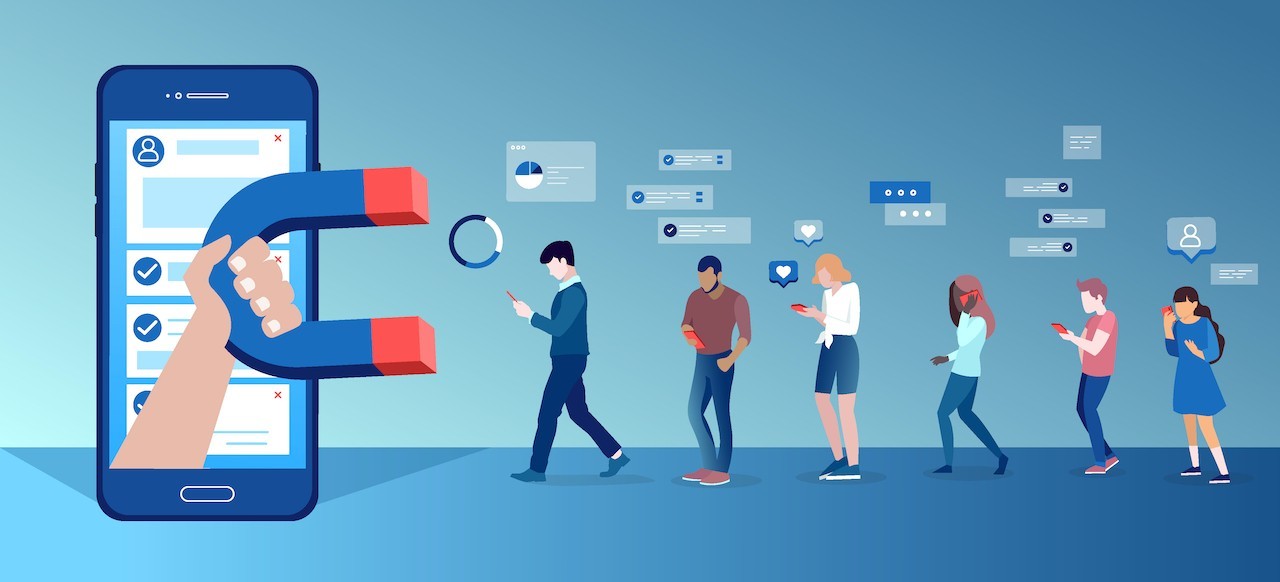Sales is an integral function of any tech companies, especially enterprise software ones. If your company is building a consumer product, strong marketing strategies will help you gain customers. But if your company is SaaS-based, then strong salespeople are a must to get clients. I have been interested in B2B companies for a while, and learning about sales is the perfect way to know more about the enterprise industry.
The talk I recently went to is called “Has Sales Tech Diminished the Need for Sales Savvy?” Essentially a lot of CRM technologies such as Salesforce, Infusionsoft, Pipedrive… have automated the sales process, making it easier for salespeople to do their job. However, is it a substitute for hard work, study, and team building? As demand generation consultants, it is possible that, because of sales automation tools, salespeople may abdicate their responsibility as mentors, coaches, and learners. The talk is a discussion on how traditional methods of sales development – research, determination, and collaboration – continue to be critical factors in a team’s and company’s success. It was hosted in the office of MuleSoft, a software company that provides integration platform for connecting applications, data sources, and APIs, in the cloud or on-premises. The panel consists of 5 industry experts:
- Falon Fatemi, CEO + Founder at Node
- David Sill, SVP of Customer Success at DiscoverOrg
- Steven Broudy, Head of Account Development, Americas at MuleSoft
- Rich Liu, VP of Corporate Sales at MuleSoft
- Moderator Chris Ortolano, Manager of Customer Enablement at DiscoverOrg
As mentioned above, the context of the talk focuses on sales tech (competence) and sales savviness (confidence).
- Sales Tech: With many tools to learn and several automated tasks to tackle, salespeople increasingly encounter solution fatigue – not knowing what to utilize with the vast amount of resources given to them.
- Sales Savviness: Good salespeople are also strategic account managers. They understand the narrative to deliver from a company’s perspective and their role value.
The big topic here is “How can technology strategically support sales narrative?” Below are my notes on the question asked and responses from the panel.
How do you describe the art of sales?
The 2 most important skills that a salesman needs to learn are deliberate practice and teamwork + accountability. If that’s too general for you, there are a few other more specific approaches:
- Instead of only relying on data sources, try to become a data partner – analyze the data and draw conclusions yourself.
- Master the essential CRM (Customer Relationship Management) and Marketing tools.
- Apply a scientific approach to tweak the sales funnel metrics.
- Invest in pipeline management – your sales pipeline is the key to evaluating, managing, and ultimately improving your sales process so you can close more deals.
- Understand the sales stack – the totality of sales software (typically cloud-based) that a particular sales team utilizes.
- Differentiate between account sales (the SDR work on specific accounts) and people sales (the SDR are assigned work based on their attributes).
What is an ideal salesperson?
An ideal salesperson has to have a growth mindset – that dedication and hard work can extend his/her abilities. He also should have a high level of intellectual horsepower as well as a solid degree of intellectual curiosity. Finally, coachability and likability count as important factors because an ideal salesperson is respected by his mentors and colleagues.
How can a salesperson learn from failure?
It is neat that he prefers short-term memory over long-term memory, so he can quickly heal from failed attempts. It is more important that he pays crucial attention to figuring what went wrong and solving that issue. It is encouraged that he is an experimenter, testing and iterating different ways while persuading a client. Finally, it is vital that a safe environment is enforced within the team’s culture so that every team member is willing to be vulnerable and share his lessons that benefit the rest of the team.
As a sales manager, how do you resolve competitiveness inside your team?
Internal competition is healthy only if it coexists with trust. Thus, a manager needs to think of the team as a family, in which there’s a shared bond between each member. Setting up a system so that everyone can be successful is the best way to have that family-like team. To do that, a manager should create team goals – the big thing that the whole team has to work together to achieve and set up incentives for individuals who perform exceptionally.
What is the best way to transfer sales knowledge from an A player (top performer) to B players (mid performer)?
This is a tricky thing because everyone is different: some people are natural salesmen, who can easily close deals; while others find it harder to convince people into buying products. Leveling up the B-players in a team can take 2 ways:
- Create a process that works for most people. This way there’s not much a performance gap between people with different level of sales expertise.
- Borrow the good traits from A players and implement them to B players. Harder said than done, this will take real responsibility from the A players to provide mentorship to their colleagues, in addition to maintaining their job performance.
What is the single one thing that salespeople need to focus on?
This goes back to the growth mindset piece, in which any salesperson should possess. Additional things to focus on are learning to be compelling and being introspective about how to hone one’s craft. A more technical thing is thinking about how to maintain the sales funnel.
How long does it take to train a new hire?
This, of course, varies from organizations to organizations, mainly depending on 2 factors:
- Product complexity: retail, small or mid-size market, enterprise solutions.
- Business maturity: founders’ experience, hiring process, technology adoption.
How can a salesperson master storytelling?
The best structure for storytelling is the Pixar Once Upon a Time formula, which is adopted by hundreds of big and small companies around the world. If the salespeople can learn that and have the opportunities to practice, then the storytelling process will be very sustainable and repeatable with full emotional engagement. It is advised that the salesperson doesn’t take the formula too literally, and instead breaks it down into specific components and see how it can apply to a specific prospect he is talking to.
Is it possible to scale the best sales practice?
Technology surely helps in this realm, as long as the sales team can instill confidence in data. However, no matter how advanced the technology can be, the core sales training skill (research, determination, collaboration) still triumphs at the end.
And that’s the wrap of the talk!



